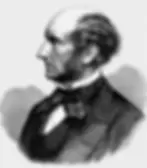Rethinking Representation: Could Proportional Voting Give Every Utahn a Voice?
- Drew Reese
- Oct 29, 2024
- 3 min read
Utah, with its rugged landscapes and pioneering spirit, stands at a crossroads. The recent Utah Supreme Court decision in the Fair Boundaries case has opened a powerful opportunity: to reshape our political landscape and let Utah’s democratic ideals shine, putting our state on the national stage. This decision is more than a victory for fair representation; it’s a chance to strengthen our democracy by adopting systems that value every vote and every community. The path forward? Adopting a proportional allocation of our electoral votes.
Such a move would push beyond merely addressing gerrymandering or district boundaries. It would mark a step into a broader vision of democracy—one where each vote matters and every Utah voice can contribute to the state's influence in national matters. Imagine a system that distributes Utah’s 6 electoral votes in proportion to how people actually vote, bringing fairness, transparency, and true representation to every corner of our state. Proportional allocation isn’t just a change in the way we vote; it’s an evolution in how we value and uphold representitive democracy itself.

Political philosophers have long emphasized the importance of governments that represent the people. John Locke envisioned government as a “social contract,” where those in power serve with the people’s consent. Yet, our current winner-takes-all approach breaches this contract, drowning out diverse voices in a state known for its cultural and political mix. A proportional system could transform our electoral process, making Utah’s votes a truer reflection of its communities and values—a real embodiment of Locke's vision of representation.

Montesquieu warned against concentrating power too heavily in one place, advocating for a balanced distribution of authority. Today, Utah’s political landscape often sees one party dominating, a setup that would have alarmed Montesquieu. Proportional allocation would distribute political influence more evenly, ensuring no single faction can stifle the rest of the state.

And then there’s John S. Mill, who cautioned against the “tyranny of the majority,” where one group’s voice drowns out all others. Sound familiar? A proportional system would guarantee our electoral votes represent all of Utah, not just the loudest voices in the room.
Imagine what this would mean for Utah. Proportional allocation could reinvigorate political engagement. Voters across the state would know their vote has a tangible impact, driving up turnout and participation. States like Maine and Nebraska, which use split or proportional electoral vote systems, see heightened voter engagement because residents know their voices matter—even in districts that historically lean a certain way. More importantly, this approach attracts candidates to all regions, not just the predictable areas, so our leaders address issues relevant to each Utah community. Instead of hearing the same talking points, Utahns would hear candidates speak to local concerns, listening to all voices in a way the current system doesn’t incentivize.

Think about the broader impacts of a proportional system on the economy. By making Utah a true battleground, we could see a boost in local economies from increased campaign spending, more visits, and broader media focus. Campaigns inject dollars into local businesses, benefit the hospitality sector, and enhance civic pride as Utah takes a leading role in the democratic process.
Proportional allocation also addresses fairness in democracy itself. When votes are proportionally allocated, each one counts directly toward the outcome, reducing democratic discrepancies like the “spoiler effect,” which unfairly impacts third-party and minority-party voters. This model allows smaller parties and independent voices to be heard without skewing the overall result—a true reflection of Utah’s diverse political landscape.
Let’s take a moment to sit with this idea. Imagine what a more balanced, representative system could mean for Utah—not just for elections, but for how we view and value each other’s voices. What if our political landscape, like our mountains and valleys, could reflect the full range of perspectives in our state? Consider sharing this idea with friends and family, and starting a conversation.
Picture the possibilities for Utah as a leader in a more inclusive, balanced democracy. Together, through these conversations, we can envision a future where every voice matters, and every vote counts.

